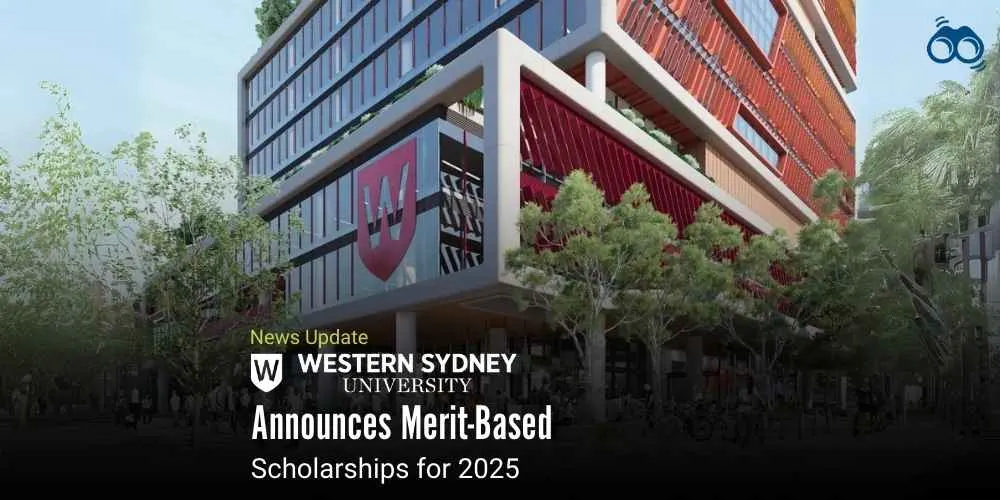New Merit-Based Awards Make Sydney University More Accessible for Global Students
Sydney University Offers Up to AUD 40,000 in Scholarships for 2025 Entrants
Western Sydney University (WSU) was described as a leading public research institution in New South Wales, Australia, recognised for its strong commitment to equity, innovation, and regional development. The university, which serves over 47,000 students across multiple campuses, was noted to be ranked among the world’s top 400 universities and to hold 5 QS Stars for excellence.
It was further reported that in July 2025, WSU received approval from the University Grants Commission (UGC) to establish a branch campus in Greater Noida, India, thereby strengthening its global presence and broadening access to Australian education. Observers highlighted that the university’s 2030 strategy, titled Unlimited Potential, was centred on job creation, income growth, and community wellbeing.
Western Sydney University announced that it was inviting applications for its Vice-Chancellor’s Academic Excellence Undergraduate Scholarships, which were designed for high-achieving international students commencing undergraduate coursework programmes in 2025. The institution explained that these merit-based scholarships would provide significant financial assistance, covering 50 per cent of tuition fees per session for up to three years of full-time study, or strictly up to 240 credit points.
University officials clarified that the opportunity was open to new international students applying for any CRICOS-registered undergraduate degree, except for the Doctor of Medicine, Bachelor of Nursing, and Bachelor of Physiotherapy. They also indicated that students entering through the International College or other pathway programmes would not be eligible. Moreover, it was stressed that according to the official scholarship requirements, all eligible applicants would be automatically assessed during the university application process, thereby eliminating the need for a separate scholarship application.
Eligibility Criteria and Selection
It was outlined that, to be eligible for the scholarship, candidates must meet the following criteria:
– They must be international students, meaning they are not citizens or permanent residents of Australia or New Zealand.
– They must be commencing a new undergraduate programme at Sydney University in 2025.
– They must have received a formal offer of admission from the university.
– They must have achieved a minimum Australian Tertiary Admission Rank (ATAR) of 90, or an equivalent score in their higher secondary education.
– They must meet all other admission requirements and accept their offer by the specified deadline.
Additionally, it was mentioned that shortlisted applicants could be asked to submit a statement explaining how the award would support their academic journey and career aspirations. It was further stated that a university panel would conduct the shortlisting process twice annually, with final decisions to be communicated via email.
Scholarship Coverage
The University emphasised that the academic scholarships would be offered as tuition fee waivers only. They would not cover living costs, accommodation, health insurance, travel expenses, or other study-related needs. Officials also remarked that the international scholarships would be discontinued if a recipient’s visa status changed to that of an Australian or New Zealand citizen or permanent resident during the study period.
Furthermore, recipients would be expected to maintain a full-time study load of 40 credit points each semester. It was underlined that any changes in enrolment—such as course adjustments, withdrawal, or leave of absence—would require prior approval from both the University and the Western Sydney International Scholarship Team. The initiative was highlighted as part of Sydney University’s efforts to expand access to global scholarships and to provide greater financial aid for international students. University administrators explained that the scholarship programme was closely aligned with broader objectives of promoting academic excellence awards, encouraging overseas study funding, and supporting students through structured education scholarships in Australia.
For comprehensive information regarding scholarship eligibility, tuition support, and the online application process, international students should visit the University's official page: westernsydney.edu.au/international/applying/fees-and-costs/scholarships/academic-excellence-undergraduate-scholarships.
The scholarship was seen as a meaningful initiative that combined financial relief with academic opportunity, thereby reinforcing Sydney University’s global vision for inclusive education.
Editor’s Note
This announcement from Western Sydney University carries considerable significance for international students aspiring to pursue higher education abroad. By offering the Vice-Chancellor’s Academic Excellence Undergraduate Scholarships, the University is not only recognising academic merit but also reducing the financial barriers that often discourage students from applying to leading global institutions. Such initiatives are particularly important in today’s competitive and costly education landscape, where access to quality learning opportunities is often determined by affordability. These scholarships address that challenge directly, enabling deserving students to focus on their studies rather than financial concerns. In practical terms, the programme ensures that high-achieving students can access world-class academic resources, develop skills for global employability, and contribute meaningfully to their fields of study. The tuition support acts as both a recognition of excellence and a pathway to broader opportunities, strengthening the University’s role in shaping future leaders.
Skoobuzz believes that this initiative reinforces the principle that talent should determine opportunity, not financial circumstance, and underscores the importance of inclusive and equitable access to higher education.














0 Comments (Please Login To Continue)